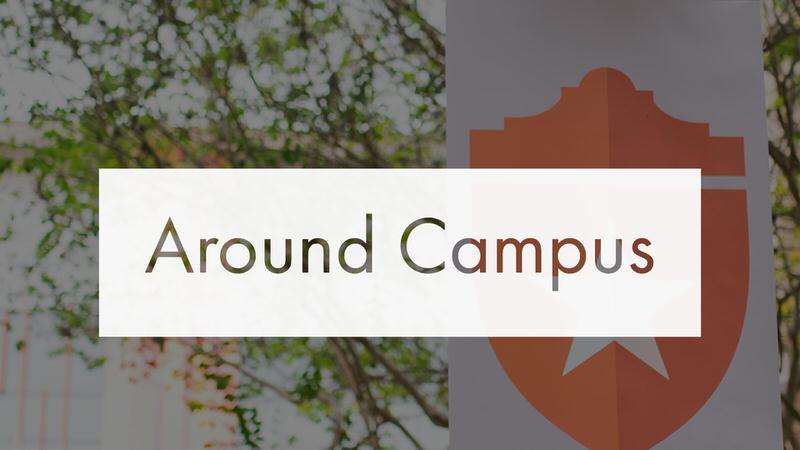Clare Murray Selected as TL1 Scholar

 Clare Murray, a student in the South Texas Medical Scientist Training (M.D./Ph.D) Program, has been selected as a Translational Science Training TL1 scholar for 21-22.
Clare Murray, a student in the South Texas Medical Scientist Training (M.D./Ph.D) Program, has been selected as a Translational Science Training TL1 scholar for 21-22.
The Translational Science Training (TST) TL1 Program at UT Health San Antonio is supported by a NIH / National Center for Advancing Translational Sciences (NCATS), a federally funded career development training program for improving the scope of predoctoral trainees and postdoctoral fellows research experience. The TL1 ‘Training Linked’ Program is linked to the Clinical and Translational Science Award (CTSA) administered by the Institute for Integration of Medicine and Science (IIMS) at UT Health San Antonio. The competitive award includes stipend support for TL1 scholars in addition to training and mentorship in translational science.
Clare will be joined with the following scholars: Valentina Garbarino, Kristi Dietert (Guerrero), Afaf Saliba, Raphael Reyes and Noah Sanchez.
She is currently working in the lab of Dr. Tyler Curiel on tumor immunology research. Specifically, she is studying the immune checkpoint molecule PD-L1.
“This has a great translational potential from bench to bedside. PD-L1 is expressed by tumor cells and canonically signals to immune cells to avoid immune destruction. Our lab has discovered that PD-L1 can actually signal inside the tumor to promote certain signals that help cancer cells survive,” she explained.
Murray’s work focuses on developing novel ways to pharmacologically target PD-L1 tumor cell-intrinsic signals, which could make therapy-resistant tumors responsive.
“This research is exiting to me because it has great translational potential, something that is very important to me as I pursue a career as a physician scientist,” she said.
She wants to let the public know that despite a lot of progress being made in understanding cancer biology and developing new therapies, treating patients’ cancer is still a huge clinical challenge and there still remains a strong need to find new successful treatments.
“I think that the lab’s current research is rapidly translational from the lab into the clinic, and our findings have the potential to improve cancer treatments and our understanding of cancer biology,” she said.
This semester, Clare will be taking her qualifying exam and applying for the F30 fellowship which are also big milestones for her in her career as a physician-scientist. As a TL1 scholar, Murray intends to delve deeper into translational science and explore the opportunities provided by the TL1 program.
“I think that it’s really important to be able to translate findings in the lab into clinical practice to help improve the lives of patients, so I am excited to be a part of the TL1 cohort,” she said.
